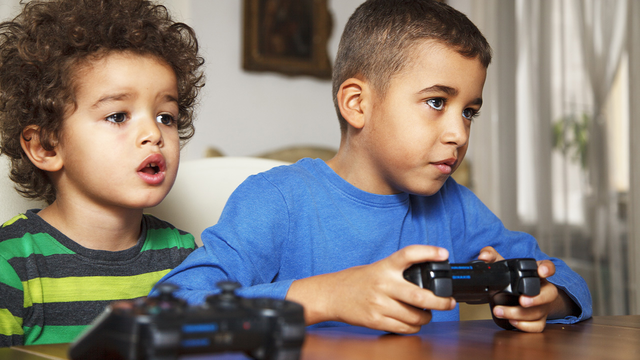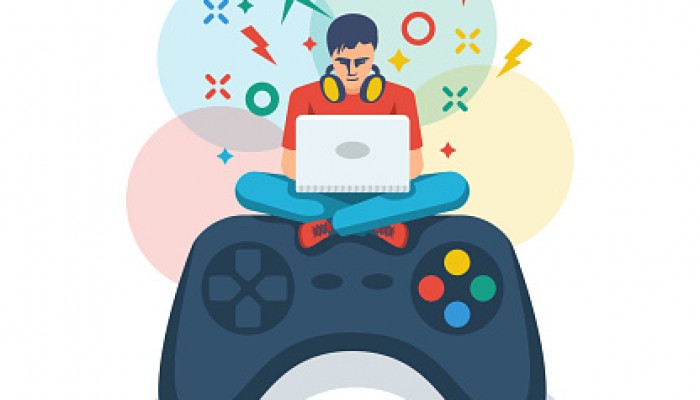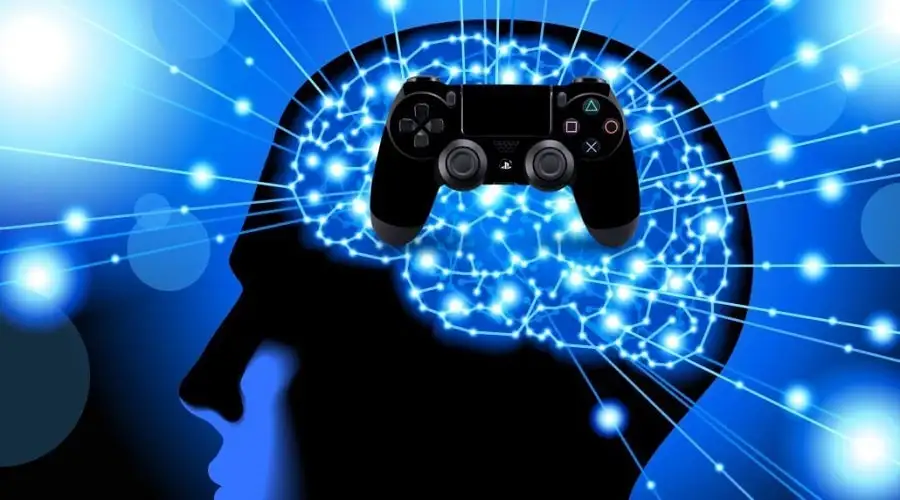By Rania Tsoli,
From the moment video games started flourishing, many adults started expressing their concern about their effects of them on children’s development. For the most part, parents, guardians, and teachers have felt that video games are mostly just a waste of time and a source of entertainment which they do not see as beneficial in any way; grown-ups tend to think of video games as something that takes time away from more worthwhile and meaningful activities, while there have also always been worrisome attitudes about how violent video games affect a child’s behavior and social skills. However, many psychologists and scientists support that video games are not all bad, especially when played in moderation, and that they do, in fact, have some benefits. So, just how destructive or beneficial can video games actually be when it comes to a child’s development?
Admittedly, parents and teachers are not completely in the wrong when worrying about the effects video games can have on children. Especially when it comes to aspects like antisocial tendencies, violent behavior, and aggressive thoughts and feelings, a grown-up’s worry and anxiousness about gaming are definitely justified. Let us focus on antisocial behavior first: children that spend what is considered to be an unhealthy amount of time playing video games can, unfortunately, end up socially isolating themselves. They may begin spending less and less time with their family, and stop caring as much about other activities that they previously engaged in, like reading a book, playing a sport, doing something artistic, or focusing on their homework. In fact, studies have shown time and time again that the more time children spend playing video games, the more possible it is for their performance in school to be poorer.
Psychologists support that a child playing a video game for extended periods of time on a daily basis is likely to eventually start scoring lower grades in school, while some students might even skip their homework in order to spend more time gaming. However, researchers have found that gamers do not always replace their real-life socializing with online game playing; in fact, video games can sometimes help a child maintain a prosperous social life, a part of gaming that we will focus on later on.

Another possible negative effect video games can have on children is violence: over the years, many psychological studies have supported that video games often encourage children to engage in violent behavior. When children get to watch and observe violent characters and scenarios in a game, they can sometimes become immune to violence, and can even turn out to be more inclined to behave in a violent manner themselves. The main cause behind video game violence traced in children is the game’s interactive nature: most video games urge the player to commit an act of violence in the game and reward them for being more violent or choosing the violent option in a storyline; active participation is achieved, and it is also often combined with repetition and rewards, with the child being in control of a character that can hurt others and choosing to kick, punch, and even kill.
We are, of course, not talking about something definite here: thankfully, a child developing violent tendencies due to playing video games is more of an exception and less of a rule. However, the problematic nature of what is depicted to children through a game is still imminent, and a grown-up’s involvement in what a child sees and how to handle potential violence in a game is crucial, to say the least.
Despite what many parents and teachers might think, video games can have positive effects on a child’s development as well, with many modern games serving as interactive forms of education for children. One example is the enhanced creativity and problem-solving skills that children can develop through video games. Various video games provide children with the opportunity to think outside the box and develop a creative mindset as challenges come up, while other modern games also involve detailed planning and require problem-solving skills in order to advance in the storyline, which the player gains as they make progress in the game’s virtual world.

It is not rare for a video game to teach kids about the world’s history and culture, as well; there are various games that are centered on real-life historical events, and get children acquainted with many countries’ cultures, customs, and traditions. This kind of video game can easily spark a child’s interest in economics, geography, ancient cultures, world history, and international relationships, and they gain valuable knowledge while having fun simultaneously.
Furthermore, contrary to what most people seem to think, video games can often help children make friends, whether that is online players or peers who like the same games as them; by creating a common ground between children, a player can end up making many friends. Through numerous online video games, kids earn the ability to develop their own social circle at an early age, whether that is a local circle or an online one. In a said social circle, children can safely enjoy the competitive side of gaming.
Being competitive and wanting to gain status and recognition through winning a game is both normal and healthy for children, with boys usually having a bit of a bigger desire to compete with others than a girl would. In fact, surveys have shown that many children – and especially boys — revealed that the main reason that they enjoy gaming is that they like to compete with others and win. Video games can be seen as a safe haven for children to express any competitive urges and turn any unhealthy need for competition into a healthy desire to win, which can often boost one’s confidence, while also giving children who do not have that much of a knack for sports the opportunity to excel at something else.

Gaming can also help enhance a child’s leadership skills while motivating them to teach others. When children play in groups, the game may require someone to lead the other members of the team, and the children may take turns leading and following, something that depends on who is the most skillful in a certain part of the game. Many games are a bit more complicated, and many players might find trouble getting the hang of a game at first. When that happens, many might turn to a friend that plays the same game and ask for guidance, something that provides children with both the instinct of making a kind gesture like teaching others, as well as the ability to admit that they might not understand something and need someone else’s help.
Last but certainly not least, video games can also help improve a child’s memory, even years after having stopped playing; recent research supports that playing video games facilitates cognitive changes in the brain. A study of the Universitat Oberta de Catalunya featured 27 adults, some of which did not have any sort of knowledge when it came to video games, while others had key gaming experience. Those who did have experience before adolescence performed better at memory tasks, despite most of them no longer playing.
As we can see, video games have both negative, as well as many positive effects on a child. In order for children to truly get the best out of their gaming experience, moderation is key, much like most things in life. As an adult, there are various things one can do in order to promote a healthy approach to video games, one of which would be greater involvement in a child’s playing habits. Checking what game a child is currently enjoying – while trying not to invade their privacy and aiming to avoid developing an over-protective nature – is fairly important. Joining a child in a game once in a while will give the chance to both parties involved to enjoy some great bonding time, along with an opportunity for the adult to get a glimpse of what the child gets in touch with on a daily basis, therefore providing them with the means to better understand any changes in their behavior, should they be connected to gaming in any way. Simultaneously, it is more than wise for a parent or guardian to establish some boundaries for children, in order to prevent them from developing any sort of addiction to gaming. Being involved and showcasing the importance of keeping a balance between the virtual and the real world will go a long way, and will help a child get the best out of gaming, while also gaining many important skills that video games have to offer in the long run.
References
- Rheine, James. Effects of video games on child development-the good and the bad, mathrider.com, Available here
- Tumbokon, Ronaldo. 25+ Positive & Negative effects of video games, raisesmartkid.com, Available here




